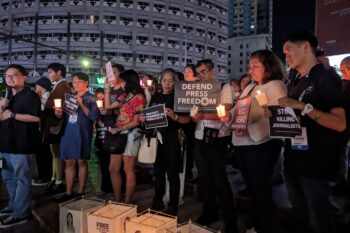Allan Yaphockun, Philippine Chamber of Commerce and Industry-Southern Mindanao governor, said increasing exports will benefit the local economies in terms of trade ties that will be forged with foreign partners.
"We're organizing a business delegation to the seminar that will be held in Thailand," Yaphockun said.
The series of seminars, dubbed "Targeting Overseas Markets: Opportunities for Southeast Asian Packaged Foods," will be conducted at the Grand Mercure Fortune Hotel in Bangkok.
The last two legs will be on March 14 and April 4 for targeting the US andChinese markets, respectively.
The first leg was finished last Nov. 23, involving the penetration of theJapanese market.
Yaphockun said they have not sent a delegation to the first seminar since they only knew about it last Jan. 2.
The Kenan Institute Asia is the organizer of the event expected to improve earnings of industries in the food business through tie-ups they could link with the foreign buyers.
Cris Frianeza, secretary general of PCCI, said the seminar will focus on assisting packaged food manufacturers and exporters increase exports to Japan, U.S., and China in three areas of packaged foods.
These areas are ready-to-eat, ready-to-cook and seasonings and ingredients,he added.
The United States Agency for International Development, which sponsored the series of seminars, will provide a travel subsidy of 5,000 baht (approximately $142) on a first come, first served basis to participants from ASEAN countries.
"Each of these sessions will hosts experts from those countries in safety, standards and labeling as wells as marketing and packaging," Frianeza said in his letter to PCCI members.
He noted that organizers will arrange one-on-one meetings between the articipants and the experts.
"Firms will be able to present their products and product ideas and receive immediate feedback," he said.
South and central Mindanao host several large and medium food processing companies.
Among them are canned tuna producers, most of which are based in this city, dubbed the "Tuna Capital of the Philippines," which host six of the country's eight tuna canneries.
Aside from manufacturing marine-based resources, food production in the area includes processing of vegetables and fruits.
